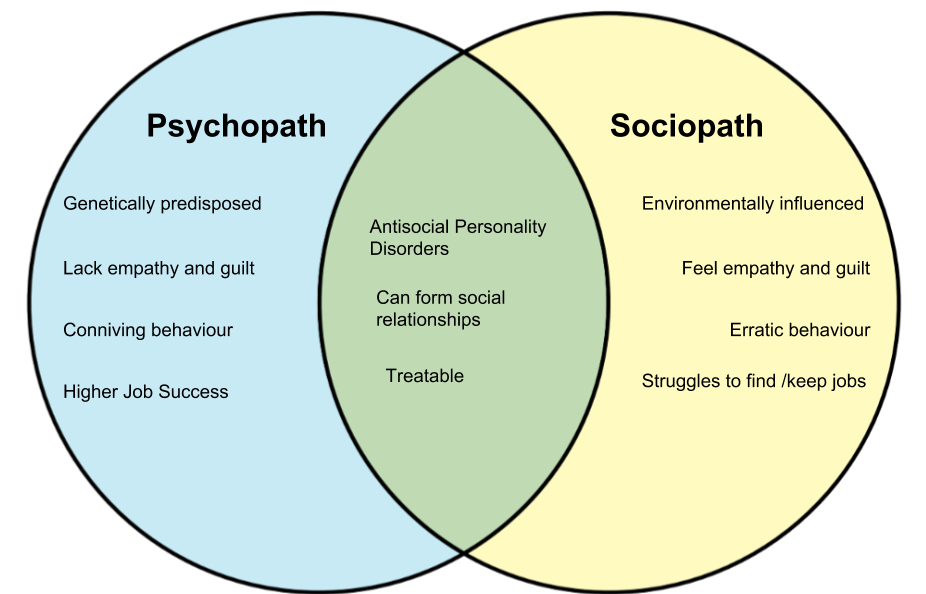/cdn.vox-cdn.com/uploads/chorus_image/image/53783237/pscy_stock.0.jpg)
If you're not a student of psychology, you probably don't feel the need to learn the difference between psychological terms. We can happily leave that to the professionals.
But, whether you realize it or not, you probably use a lot of mental-health-related words and phrases in everyday conversation. And you might be surprised to learn that you and a whole lot of other people are using them wrong. A new review by five psychologists reveals some of the terms most commonly confused and misused by journalists, casual readers, and even experts. Check out a few of the most surprising terms on the list below, and find out if you've been using the term schizophrenic wrong this whole time:
But, whether you realize it or not, you probably use a lot of mental-health-related words and phrases in everyday conversation. And you might be surprised to learn that you and a whole lot of other people are using them wrong. A new review by five psychologists reveals some of the terms most commonly confused and misused by journalists, casual readers, and even experts. Check out a few of the most surprising terms on the list below, and find out if you've been using the term schizophrenic wrong this whole time:

1. Psychopathy versus sociopathy:
People tend to use these interchangeably, which makes sense when you consider that various authors describe sociopathy as synonymous with psychopathy. However, sociopathy is not a formal psychological or psychiatric term. As such, it's been used to describe a variety of conditions, including antisocial personality disorder and psychopathy characterized by especially poor regulation of emotions. Psychopathy, on the other hand, is a specific, diagnosable personality disorder hallmarked by "superficial charm, poise, and low anxiety conjoined with guiltlessness, callousness, dishonesty, and poor impulse control."

2. Schizophrenia versus multiple personality disorder:
This one is pretty well understood in the psych community, but pop culture gets it wrong more often than not. Most people think schizophrenia is the same as a split personality, which is the same as multiple personality disorder. In reality, schizophrenia is characterized by "a severe splitting of functions, such as cognition, emotion, and motivation, within a single person," whereas the mind of someone with multiple personality disorder (which is now known as dissociative identity disorder) actually encompasses two or more "alters," or alternative personality states. (So, James McAvoy in Split? His character suffers from DID, not schizophrenia.).

3. Clairvoyance versus precognition:
Clairvoyance comes from the French for "clear vision," whereas precognition is rooted in Latin to "know before." If you can remember the etymology of these words, you'll have a much easier time remembering which means what. Both abilities would be classified as "psychic powers," and evidence supporting the existence of both is minimal. However, precognition refers specifically to the ability to predict the future, whereas clairvoyance describes "the ostensible ability to detect the presence of hidden objects (or objects otherwise out of sensory contact) by means of psychic powers."

4. Disease versus illness:
Wondering what in the world these terms are doing on the list? That might be because disease and illness are used synonymously so often that the true meanings of each have been forgotten. Most cultural anthropologists and sociologists consider "disease" to be the "specific pathology or malfunctioning of a body part," whereas "illness" actually describes the sufferer's psychological reactions to their ailment.

5. Prejudice versus discrimination:
While both of these words describe intolerance, prejudice describes a belief, while discrimination refers to a behaviour that expresses that belief. Prejudice is the tendency to "prejudge" others based on classifications such as race, socioeconomic status, education level, or gender. Discrimination is the enacting of prejudice through mistreatment insulting, ignoring, or not giving equal opportunity to others based on their membership in certain categories.

6. Envy versus jealousy:
If you had no idea there was a difference, you're not alone. These terms are used interchangeably so often that very few people know they mean slightly different things. (But now you're one of them.) Envy, it turns out, involves only two people, whereas jealousy requires three or more participants. For example, the emotion you might feel if your friend got a promotion you were really hoping for is envy. But the emotional response you might have if your friend was invited to a members-only club by the president of the company would be described as jealousy.

Obsession is to compulsion as prejudice is to discrimination the internal motivation that results in external behaviour. So, recurring thoughts about the contamination you might be exposed to when opening doors, shaking hands, etc., are anxiety-producing. These thoughts comprise an obsession. The repetitive hand-washing that someone might engage in to mitigate such obsessive thoughts, on the other hand, is anxiety-reducing at least temporarily and would be referred to as a compulsion.